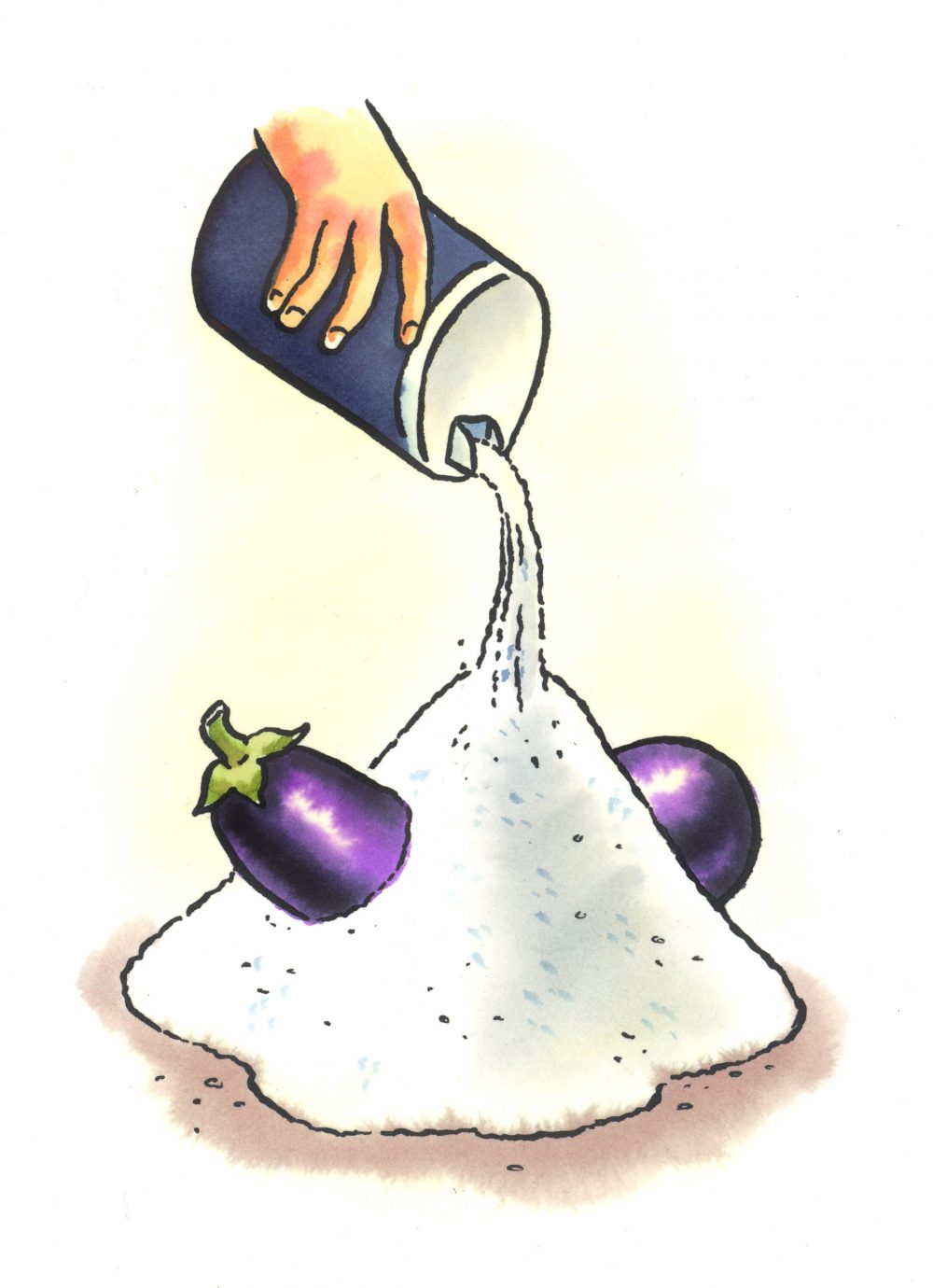Conventional culinary wisdom urges cooks to salt eggplant before cooking it, so as to remove water and tame bitterness. Calling into Milk Street Radio, Sharon Boyd, of Wilmington, Delaware, wondered whether that was really necessary and, if so, if there’s a better way.
Thanks to their spongy flesh, eggplant are capable of retaining an extraordinary amount of moisture—moisture that can inhibit browning during cooking. They also have a reputation as having a bitter taste.
Cooks have long dealt with both issues by generously salting the flesh and setting it in a colander to drain before cooking.
These days, bitterness has been bred out of most eggplant. But excess moisture is still an issue.
In our testing, we compared conventional salting with a newer technique: salting and microwaving. In each case, we sprinkled cubed eggplant with 1 teaspoon kosher salt. For the standard method, we let it drain for 30 minutes, then blotted it dry. It worked as expected. For the microwave approach, we heated cubed, salted eggplant (set on a paper towel-lined plate) on high for 5 minutes. Though this approach removed water more quickly, it yielded gray, mushy eggplant that tasted too salty.
The good news is that we’ve found that eggplant actually does not need to be salted and dried in order to achieve nice browning. In recipes for dishes such as caponata, longer cooking works just as well to evaporate excess water and clear the way for flavorful caramelization.
See below for some of our favorite eggplant recipes:
Spicy Egyptian Eggplant with Fresh Herbs
Roasted Eggplant Pizza with Za’atar and Feta
Grilled Eggplant with Sesame Seeds and Herbs
Pasta alla Norma
See here for more cooking tips inspired by questions on our radio show, and find more from Milk Street Magazine here.
Join the conversation on Facebook, Twitter, Instagram and Pinterest




